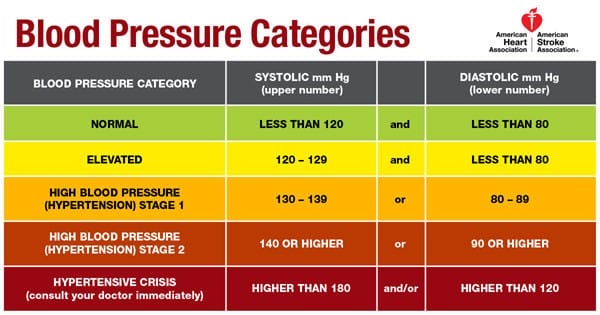 High blood pressure, also known as hypertension, is called the “silent killer” because there are often no obvious symptoms. It accounts for more heart disease and stroke deaths than almost all other preventable causes – coming in second only to smoking. And the incidence of hypertension is now even higher, according to the American College of Cardiology and the American Heart Association. Their new guidelines defining blood pressure levels indicate that nearly half of all adults in the U.S. are now considered to have high blood pressure.
High blood pressure, also known as hypertension, is called the “silent killer” because there are often no obvious symptoms. It accounts for more heart disease and stroke deaths than almost all other preventable causes – coming in second only to smoking. And the incidence of hypertension is now even higher, according to the American College of Cardiology and the American Heart Association. Their new guidelines defining blood pressure levels indicate that nearly half of all adults in the U.S. are now considered to have high blood pressure.
Paula Battle, of Tacoma, learned how quickly life can be turned upside-down when high blood pressure goes unmanaged. In 2009 she started her day feeling ill, but as many people do, carried on and went to work. During a meeting, she felt a sudden sharp pain in her head. Her vision started to blur. She knew something was very wrong. Colleagues immediately escorted her to the on-site employee health clinic. By that point, her blood pressure was at a life-threatening level and paramedics were called.
“The ambulance ride to the hospital completely changed my life,” Battle said. “I promised myself that if I was able to put my feet on the ground again that I would be different. I needed to change my life for myself, but also for my husband and children.”
Battle adopted simple advice from her physician: walk 30 minutes a day and eat more fruits and vegetables. She loved the way walking made her feel, so her commitment eventually increased to five to six miles per day. “Walking and eating better has given me an entirely new outlook. My blood pressure is in a healthy range, I’m more energized and am able to do the things I love with my family.”
The new guideline recommends that people with readings at or higher than 130 as the top number or 80 as the bottom number should consult with their physician about ways to reduce their blood pressure. Commonly, lifestyle modifications such as adopting a heart-healthy diet, losing weight, quitting cigarettes, cutting back on alcohol and increasing physical activity can make a significant impact. Medication may also be prescribed.

JULIE LEYDELMEYER
For more information about the American Heart Association or heart disease:
heart.org